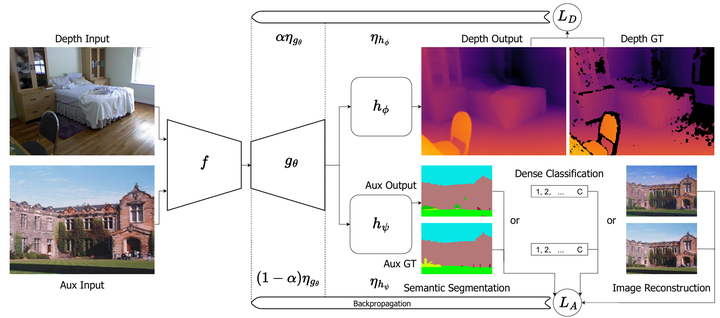 Image credit: Alessio Quercia
Image credit: Alessio Quercia
Abstract
Monocular depth estimation (MDE) is a challenging task in computer vision, often hindered by the cost and scarcity of high-quality labeled datasets. We tackle this challenge using auxiliary datasets from related vision tasks for an alternating training scheme with a shared decoder built on top of a pre-trained vision foundation model, while giving a higher weight to MDE. Through extensive experiments we demonstrate the benefits of incorporating various in-domain auxiliary datasets and tasks to improve MDE quality on average by $\sim11%$. Our experimental analysis shows that auxiliary tasks have different impacts, confirming the importance of task selection, highlighting that quality gains are not achieved by merely adding data. Remarkably, our study reveals that using semantic segmentation datasets as Multi-Label Dense Classification (MLDC) often results in additional quality gains. Lastly, our method significantly improves the data efficiency for the considered MDE datasets, enhancing their quality while reducing their size by at least 80%. This paves the way for using auxiliary data from related tasks to improve MDE quality despite limited availability of high-quality labeled data. Code is available at https://jugit.fz-juelich.de/ias-8/mdeaux.